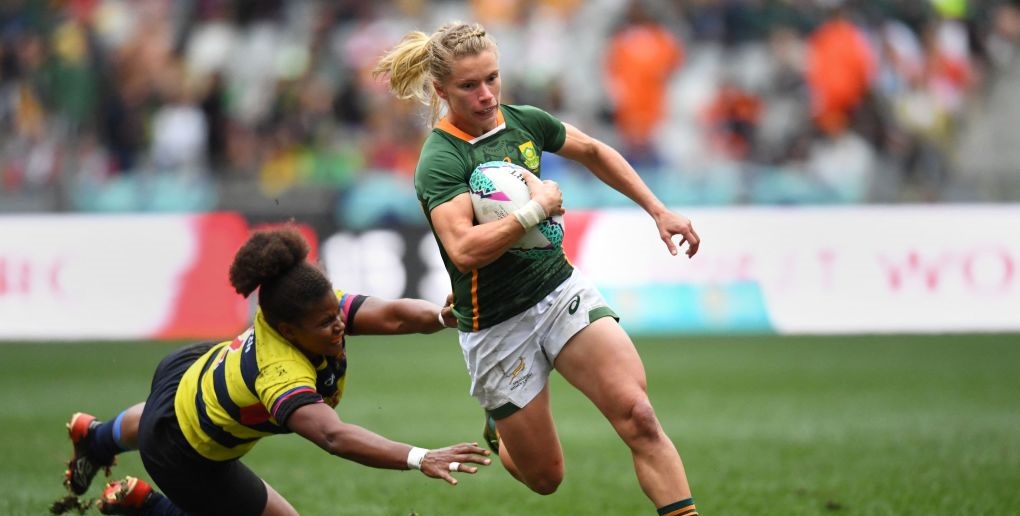Springboks Women's Sevens name 4 uncapped players for Dubai SVNS

Springbok Women’s Sevens head coach Renfred Dazel has named a 13-player squad for the HSBC SVNS series opener in Dubai, featuring four uncapped players.
The Emirates Dubai Sevens is the first of eight tournaments in the revamped HSBC SVNS and will be played at The Sevens Stadium on 2-3 December.
Kyla de Vries, Libbie Janse van Rensburg, Shiniqwa Lamprecht, and Maria Tshiremba are set to make their international debut on the HSBC SVNS world stage. Lamprecht, however, with Junior Springbok experience, is the only one of the quartet who hasn’t represented South Africa at senior level before.
De Vries and Tshiremba were crucial to their side’s recent Rugby Africa Women’s Sevens Cup win, which secured South Africa’s Olympic qualification for the Paris Olympics next year. Libbie Janse van Rensburg debuted during the World Rugby Sevens Challenger Series, where South Africa’s victories earned HSBC SVNS core status.
In Dubai, the quartet will make their debuts alongside seasoned co-captains Mathrin Simmers and Zintle Mpupha, both World Series veterans. Simmers, the most-capped Springbok Women’s Sevens player, has 14 tournaments to her name, while Mpupha and Nadine Roos, SA Rugby Women’s Player of the Year, mark their seventh World Series appearance.
“We are low on tournament caps, but only Shiniqwa has not played against the big teams on the circuit, so I am confident that we will embrace this opportunity,” said head coach Renfred Dazel. “We have trained hard over the last couple of months, specifically to be competitive against the top sides. We are determined to finish in the top eight at the end of the series and stay on the circuit.”
Sadly Eloise Webb was ruled out of contention for the Dubai and Cape Town tournaments after sustaining an ankle injury in Belgium.
“It is unfortunate indeed, as she has played at two Rugby World Cups and five tournaments in the series in the past, so we will miss that experience, but that gave Shiniqwa her opportunity,” said Dazel. “We trained with a good, wider squad and I am thankful for the support received from SA Rugby for being able to do that. We now must go and implement all those training sessions in the matches we will play.”
“We fought hard to get onto the circuit and were proud to achieve that goal of qualifying. The big mission now is to make sure we finish in the top eight and stay on the series automatically.”
Springbok Women’s Sevens squad for Dubai:
Zintle Mpupha (co-captain)
Liske Lategan
Rights Mkhari
Asisipho Plaatjies
Simamkele Namba
Kyla de Vries
Mathrin Simmers (co-captain) –
Nadine Roos
Libbie Janse van Rensburg
Marlize de Bruyn
Shiniqwa Lamprecht
Maria Tshiremba
Ayanda Malinga









































































